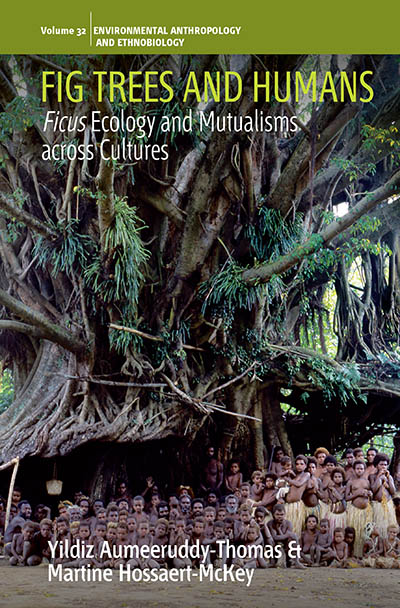“Very good for scholarly purposes … One of the aspects I particularly appreciated is the multiple perspectives regarding interactions, how humans have influenced the ecology of some Ficus species and how some Ficus species have influenced the structure of some human societies.” • Guillaume Odonne, French National Centre for Scientific Research
“It is a unique book in that there is nothing close or similar in precisely accomplishing the complex relation of figs (with humans) ... The significance of the relationship for humans is encapsulated very well through the book.” • Augusto Oyuela-Caycedo, University of Florida
Humans and figs form hybrid communities within the context of anthropogenic landscapes, supported by biocultural mutualisms driven by traits of Ficus species and people’s imagination and practices, and where humans also positively influence Ficus species ecology. Fig Trees and Humans examines the interactions between the biology and ecology of the genus Ficus and how humans use and think of Ficus species across the tropics and in the Mediterranean region. It demonstrates a high level of convergence of material and symbolic uses of human-fig interactions that affect various aspects of human culture, as well as the ecology of wild or cultivated Ficus species.
Yildiz Aumeeruddy-Thomas is Director of Research at the Centre for Functional and Evolutionary Ecology (CEFE), CNRS, France. She coordinates interdisciplinary research that integrates anthropological and ecological studies.
Martine Hossaert-McKey, based at the CEFE, is currently the CNRS Director of SOLUBIOD, a long-term programme on Nature-Based Solutions funded by the French government.
LC: GN476.73 .A96 2024
BISAC: SOC002010 SOCIAL SCIENCE/Anthropology/Cultural & Social; NAT010000 NATURE/Ecology; NAT034000 NATURE/Plants/Trees


